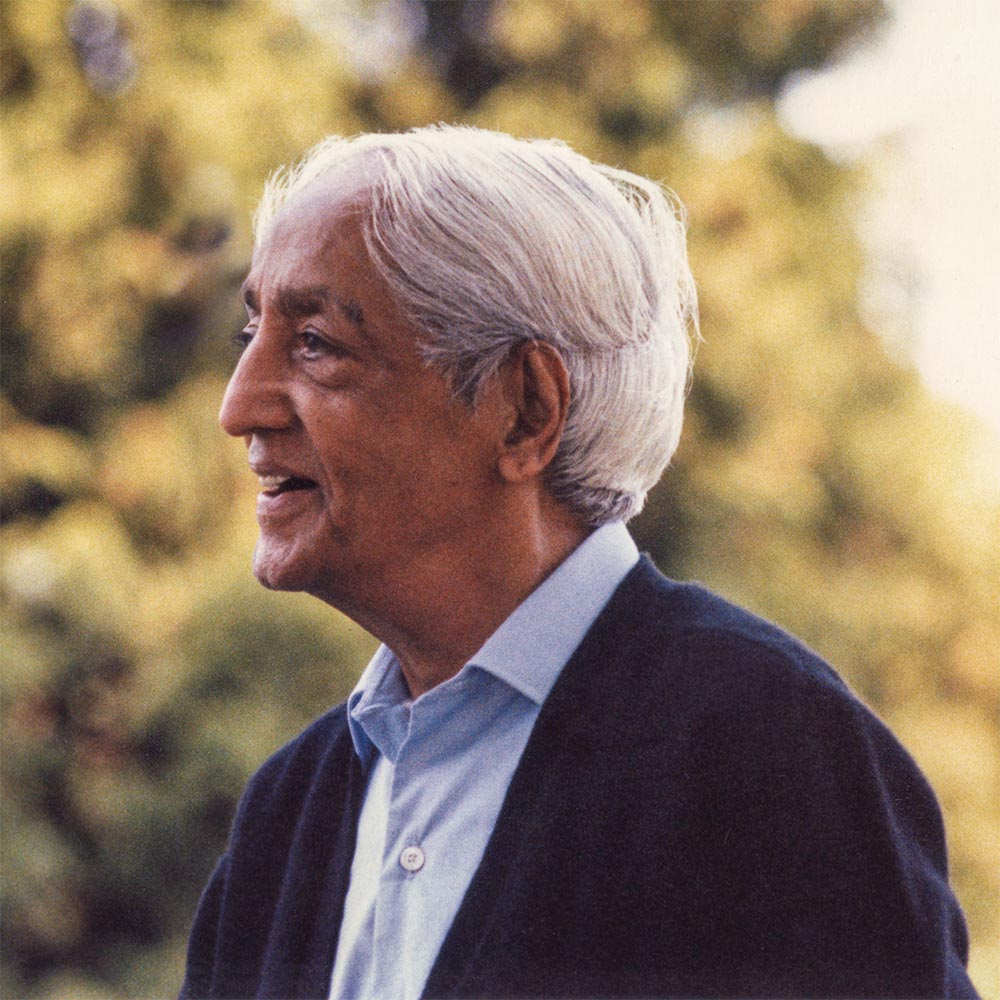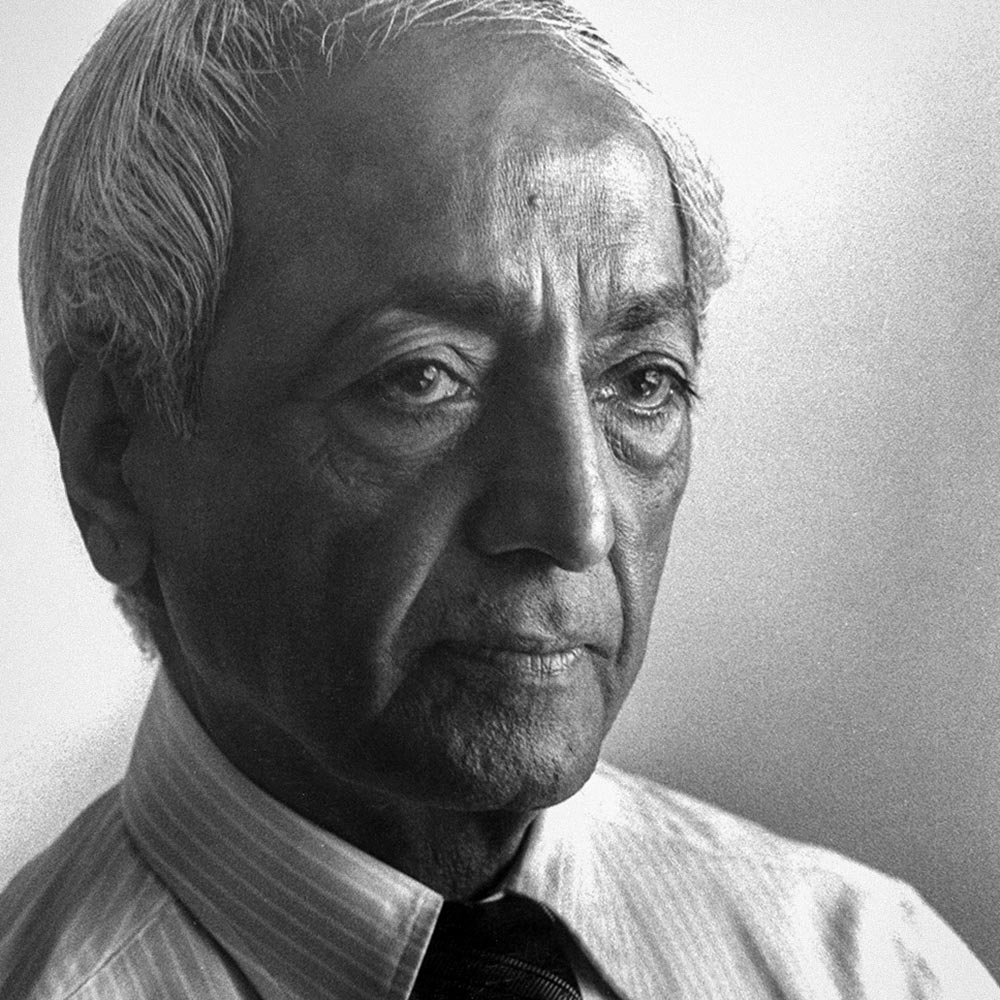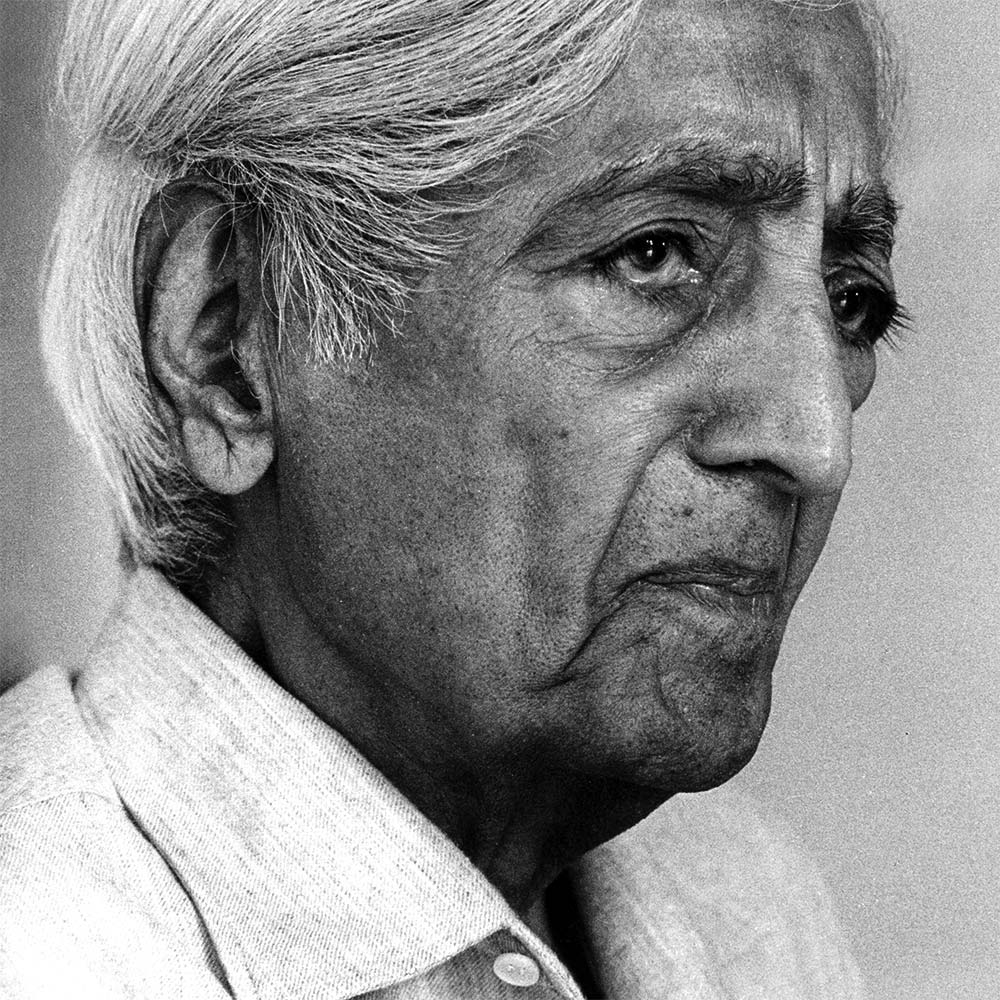Aren’t you, in your very struggle to be different, the same as others? Why all this struggle?
Krishnamurti, The Only Revolution
Read More
Our whole life is based on the everlasting struggle to arrive, to achieve, to become. The more we struggle, the more significant and exaggerated the self becomes.
Krishnamurti, Reflections on the Self
Read More
We struggle with an end in view; we strive after achievement. We make a constant effort to become something, positively or negatively. The struggle is always to be secure in some way.
Krishnamurti, Commentaries on Living 2
Read More
We are so concerned with ourselves. We struggle to become somebody, to achieve and maintain a certain position; we have children and other responsibilities, and we have to earn money. All these external things soon weigh us down, and thereby we lose the joy of living.
Krishnamurti, Reflections on the Self
Read More
If we did not worry, we would feel that we were not alive; to be struggling with a problem is, for the majority of us, an indication of existence.
Krishnamurti, Commentaries on Living 1
Read More
This conflict, this struggling within the cage of thought, is what you call progress.
Krishnamurti, Commentaries on Living 2
Read More
Humanity has always struggled against evil in order to be good, but goodness can never come into being if there is any form of violence or struggle.
Krishnamurti, The Whole Movement of Life Is Learning
Read More
The more you resist or struggle against something, the less you comprehend it.
Krishnamurti, Life Ahead
Read More
There is no being if there is a struggle to be. In the struggle to be, there is resistance and denial, mortification and renunciation.
Krishnamurti, Commentaries on Living 1
Read More
There is, consciously or unconsciously, a struggle between thought and the organism. In this way, thought destroys the natural intelligence of the body.
Krishnamurti, The Whole Movement of Life Is Learning
Read More
Do we understand through effort, analysis, comparison or any form of mental struggle? Surely, understanding comes only when the mind is very quiet.
Krishnamurti, The First and Last Freedom
Read More
Truth is in ‘what is’ – and that’s the beauty of it. The moment you conceive it, the moment you seek it, you begin to struggle, and one who struggles cannot understand. That is why we have to be still, observant, passively aware.
Krishnamurti, The First and Last Freedom
Read More
When you see a man struggling to gain, to achieve, to get ahead of somebody else, have you ever asked yourself what is in his heart?
Krishnamurti, Life Ahead
Read More
Why do we go through the struggle to be educated? Is it merely to pass exams and get a job? Or is it the function of education to prepare us to understand the whole process of life?
Krishnamurti, Think on These Things
Read More
When you are doing something with your whole being, simply because you love to do it, in that there is no ambition, no competition; you are not struggling with anyone for first place.
Krishnamurti, Think on These Things
Read More
These quotes only touch on the many subjects Krishnamurti inquired into during his lifetime. His timeless and universal teachings can be explored using the Index of Topics where you will find texts, audio and video related on many themes. Another option is to browse our selection of curated articles or more short quotes. Krishnamurti’s reply when asked what lies at the heart of his teachings can be found here. Many Krishnamurti books are available, a selection of which can be explored here. To find out more about Krishnamurti’s life, please see our introduction and the biography. We also host a weekly podcast, and offer free downloads. Please visit our YouTube channel for hundreds of specially selected shorter clips. Below, you can learn more about Krishnamurti and our charity which he founded in 1968.

Who Was Krishnamurti?
J. Krishnamurti (1895-1986) is widely regarded as one of the greatest thinkers and religious teachers of all time. He spoke throughout the world to large audiences and to individuals, including writers, scientists, philosophers and educators, about the need for a radical change in mankind. Referring to himself, Krishnamurti said:
He is acting as a mirror for you to look into. That mirror is not an authority. It has no authority, it’s just a mirror. And when you see it clearly, understand what you see in that mirror, then throw it away, break it up.
Krishnamurti was concerned with all humanity and held no nationality or belief and belonged to no particular group or culture. In the latter part of his life, along with continuing to give public talks, he travelled mainly between the schools he had founded in India, Britain and the United States, which educate for the total understanding of man and the art of living. He stressed that only this profound understanding can create a new generation that will live in peace.
Krishnamurti reminded his listeners again and again that we are all human beings first and not Hindus, Muslims or Christians, that we are like the rest of humanity and are not different from one another. He asked that we tread lightly on this earth without destroying ourselves or the environment. He communicated to his listeners a deep sense of respect for nature. His teachings transcend man-made belief systems, nationalistic sentiment and sectarianism. At the same time, they give new meaning and direction to mankind’s search for truth. His teaching is timeless, universal and increasingly relevant to the modern age.
I am nobody. It is as simple as that. I am nobody. But what is important is who you are, what you are.
Krishnamurti
Krishnamurti spoke not as a guru but as a friend. His talks and discussions are based not on tradition-based knowledge but on his own insights into the human mind and his vision of the sacred, so he always communicated a sense of freshness and directness, although the essence of his message remained unchanged over the years. When Krishnamurti addressed large audiences, people felt that he was talking to each of them personally, addressing their own particular problem. In his private interviews, he was a compassionate teacher, listening attentively to those who came to him in sorrow, and encouraging them to heal themselves through their own understanding. Religious scholars found that his words threw new light on traditional concepts. Krishnamurti took on the challenge of modern scientists and psychologists and went with them step by step, discussing their theories and sometimes enabling them to discern the limitations of their theories.
Krishnamurti left a large body of literature in the form of public talks, writings, discussions with teachers and students, scientists, psychologists and religious figures, conversations with individuals, television and radio interviews, and letters. Many of these have been published as books, in over 60 languages, along with hundreds of audio and video recordings.

The Krishnamurti Foundation
Established in 1968 as a registered charity, and located at The Krishnamurti Centre, Krishnamurti Foundation Trust exists to preserve and make available Krishnamurti’s teachings.
The Foundation serves a global audience by providing worldwide free access to Krishnamurti videos, audio and texts to those who may be interested in pursuing an understanding of Krishnamurti’s work in their own lives.
In describing his intentions for the Foundations, Krishnamurti said:
The Foundations will see to it that these teachings are kept whole, are not distorted, are not made corrupt.

